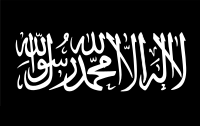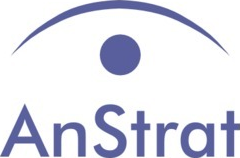
- Local Name: N/a
- Transliteration: N/a
- Alternatives: N/a
- Status: 1990s – Active
- Conflicts: European Islamist Militancy, Syrian Civil War, fmr International Islamist Militancy, fmr Bosnian Civil War
The Bassam Ayachi Network [BAN] was an informal community of radical Salafis based in the Brussels suburb of Molenbeek. It grew around Syrian-born preacher Bassam Ayachi in the 1990s and developed close links to international jihadi elements. The network played an instrumental role in the spread of Salafi extremism in Belgium over the last decades. In recent years, the BAN has been eclipsed by other jihadi networks active in the country. Some of these entities have been set up by former associates of the BAN.
Historical Overview
The BAN emerged after Bassam Ayachi had moved into Molenbeek in 1992 and became a preacher at a local mosque.1 He railed against Western society and advocated jihad in his sermons. Ayachi attracted a following and emerged as an influential figure in Molenbeek’s Muslim community. In 1997, he set up the Belgian Islamic Center [CIB; Centre Islamique Belge] to provide religious instruction and Arabic language courses.2 It soon became a hotbed of radical Islamist activity where unrecognized marriages were officiated, exorcisms were conducted and religious healings were performed.3
In the late 1990s, the CIB attracted exiled Islamists and foreign jihadis who had begun using Brussels as a logistical hub and refuge. Ayachi and his followers soon started assisting militants traveling to and from Bosnia. They also came into contact with North African Islamist militants, including several al-Qa’ida operatives.4 The BAN developed especially close relations with the Belgian branch of the Tunisian Combatant Group [GCT; Groupe Combattant Tunisien].5
Following the Sep. 11, 2001 attacks, the BAN came under scrutiny. Several of the network’s associates got caught up in the Belgian government’s crackdown on al-Qa’ida operations in the country. The Nizar Trabelsi Module [NTM] was rolled up in late 2001. Some of its members were linked to followers of Ayachi. The authorities also moved against the Belgian wing of the GCT that had helped kill Afghanistan’s Northern Alliance commander Ahmed Massoud.6 BAN members were implicated, but the network itself was only marginally affected by the clampdown and continued to operate freely. Ayachi and other senior network figures escaped unaffected. They continued backing al-Qa’ida and some actively distributed its propaganda on the internet.7
Around the same time, Ayachi, his son and several other BAN operatives joined the upstart Islamist political party of long-time acquaintance Jean-François Bastin; the Citizenship and Prosperity Party [PCP; Parti Citoyenneté et Prospérité]. The fundamentalist party advocated the establishment of an Islamic state in Belgium. Ayachi, his son and Bastin led the PCP in the 2003 Belgian legislative elections. Although the party received thousands of votes, it failed to qualify for representation in the Belgian parliament.8 In 2004, the party split due to tensions between the Ayachis and Bastin who wanted to broaden its support base.9
Despite their forays into politics, BAN members continued their jihadi activities. Some of its associates were linked to members of the Bilal Soughir Network [BSN] that sent a number of Belgian jihadis to fight with al-Qa’ida’s forces in Iraq during the mid-2000s.10 Soughir’s entity was rolled up in late 2005.11 Senior network operatives, including Ali Tabich and Abdelrahman Ayachi, subsequently set up a new cell in 2006 and dispatched Belgian jihadis to Afghanistan and Iraq.12 At the same time, BAN collaborator Malika el-Aroud became a key al-Qa’ida-affiliated propagandist and recruiter.13 Network operatives also continued to operate websites which disseminated al-Qa’ida propaganda.14
In the late 2000s, the BAN suffered a number of setbacks. The Belgian authorities clamped down on the al-Qa’ida-affiliated network headed by Malika el-Aroud.15 In November 2008, the BAN was dealt a serious blow when Ayachi and his deputy Raphaël Gendron were arrested by the Italian police for smuggling illegal immigrants.16 While in jail, the authorities intercepted conversations in which the two men discussed plans to carry out attacks throughout Europe.17 Ayachi and Gendron received eight-year prison sentences by an Italian court in 2011.18 In the meanwhile, Belgian authorities had also rolled up the Ali Tabich Module [FAT] during a series of raids in the capital city in November 2010.19 In July 2012, an Italian appeals court acquitted Bassam Ayachi and Gendron due to insufficient evidence.20
Earlier, Abdelrahman Ayachi had traveled to Syria where he joined the Falcons of the Levant Brigade [LSaS; Liwa Suqur al-Sham].21 He rose through the ranks and by early 2013, Ayachi had become one of the group’s most senior commanders.22 Several other BAN associates joined Ayachi in Syria. Raphaël Gendron linked up with the LSaS in February 2013.23 Abdelrahman Ayachi and Gendron died in separate encounters with Syrian regime forces in mid-2013.24 Despite these deaths, members of the BAN continued to travel to Syria. Bassam Ayachi eventually moved to the country in December 2013.25 He served as the spiritual leader and Islamic judge for the LSAS.26 In Syria, Ayachi and his associates became vocal critics of the Islamic State of Iraq and the Levant [DaIISh; Dawlat al-Islamiya fi-Iraq wal ash-Sham].27 DaIISh operatives retaliated and tried to kill Ayachi on two occasions in February 2015 and November 2016.28
Ayachi returned to Europe in 2018. The French authorities apprehended him in March 2018.29 Little information is available on the BAN’s current activities. With the arrest of its leader and the deaths of some key members, the network is believed to have been degraded significantly. Since the vast majority of the BAN’s associates remain free, the network’s remnants likely constitute Belgium’s most potent pool of jihadi capabilities.
The BAN has generally refrained from participation in the campaign of jihadi attacks that has plagued Europe since the mid-2010s. There have been exceptions however. A longtime BAN cadre injured three policemen in a knife attack in the Schaarbeek suburb of Brussels on Oct. 02, 2016.30
Senior Leadership
The BAN was made up of associates of Syrian-born preacher Bassam Ayachi. He acted as the spiritual leader of the network and played a key role in the introduction of radical Salafism in Brussels.31 Ayachi was instrumental in developing links between Belgian Islamists and international jihadi organizations. His son Abdelrahman Ayachi and Raphael Gendron also wielded considerable influence over BAN associates. Both have since died in Syria.32 Other senior figures within the network were Ali Tabich and Olivier Dassy. Influential Islamist radicals such as al-Qa’ida-affiliated Malika el-Aroud and Jean-François Bastin were also long associated with the BAN. By the mid-2000s, they had split from the network.
Public Relations
While the BAN generally operated in the shadows, some of its leading members made appearances in the press or were active on social media. Ayachi and his late son received considerable attention by the press in recent years.33 BAN operatives present themselves as devout and strict Muslims, but hide their jihadi tendencies. Some of its Syria-based operatives have highlighted their differences with the DaIISh.
Cadres of the BAN played a key role in spreading al-Qa’ida’s propaganda in Europe during the mid-2000s. These elements operated a number of websites that were popular within radical Salafi circles. These activities were overseen by senior network operatives such as Abdelrahman Ayachi and Raphaël Gendron.34
External Linkages
The BAN was linked to elements of al-Qa’ida and affiliated group such as Tunisia’s GCT. The Tunisian attackers who killed Northern Alliance commander Ahmed Massoud on Sep. 09, 2001 were among the network’s associates.35 Influential al-Qa’ida-linked propagandist Malika el-Aroud was once closely affiliated with the BAN.36
In the mid-2000s, BAN operatives developed ties to al-Qa’ida forces in Iraq. Through Bilal Soughir and Ali Tabich, several associates of the network linked up with the jihadis in Iraq.37 Ties between the BAN and the predecessor of the DaIISh broke off in the early days of Syria’s civil war. The network has since been linked to the LSaS. Many key BAN members have joined the group in recent years. Bassam Ayachi eventually became the spiritual leader of the LSaS.38 His son had earlier served as an important commander for the outfit.39
References
